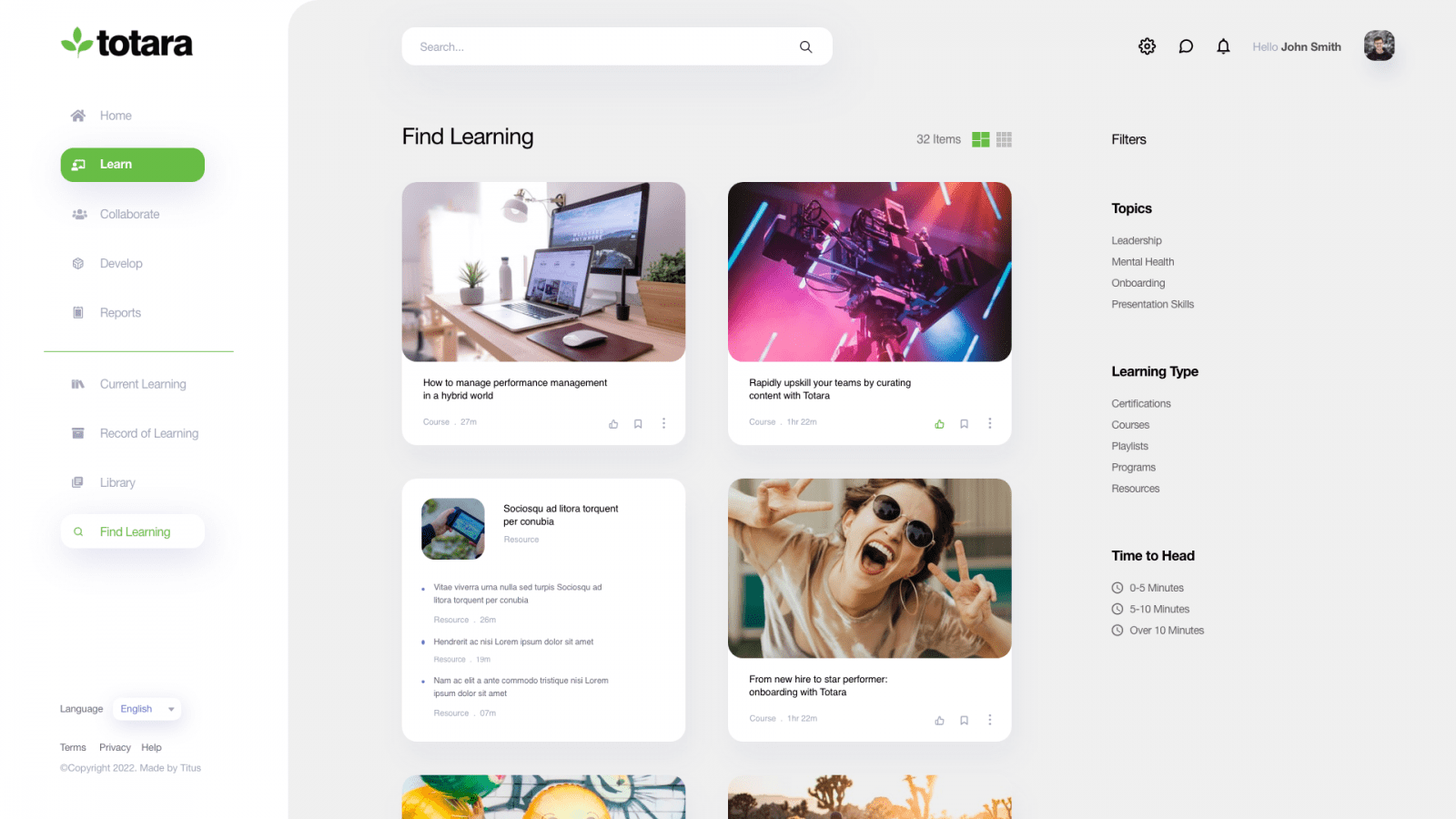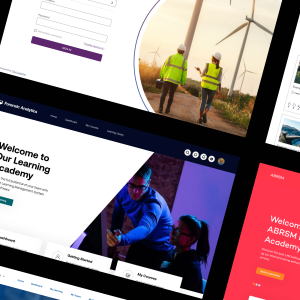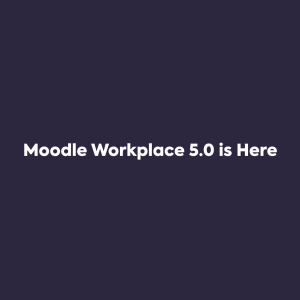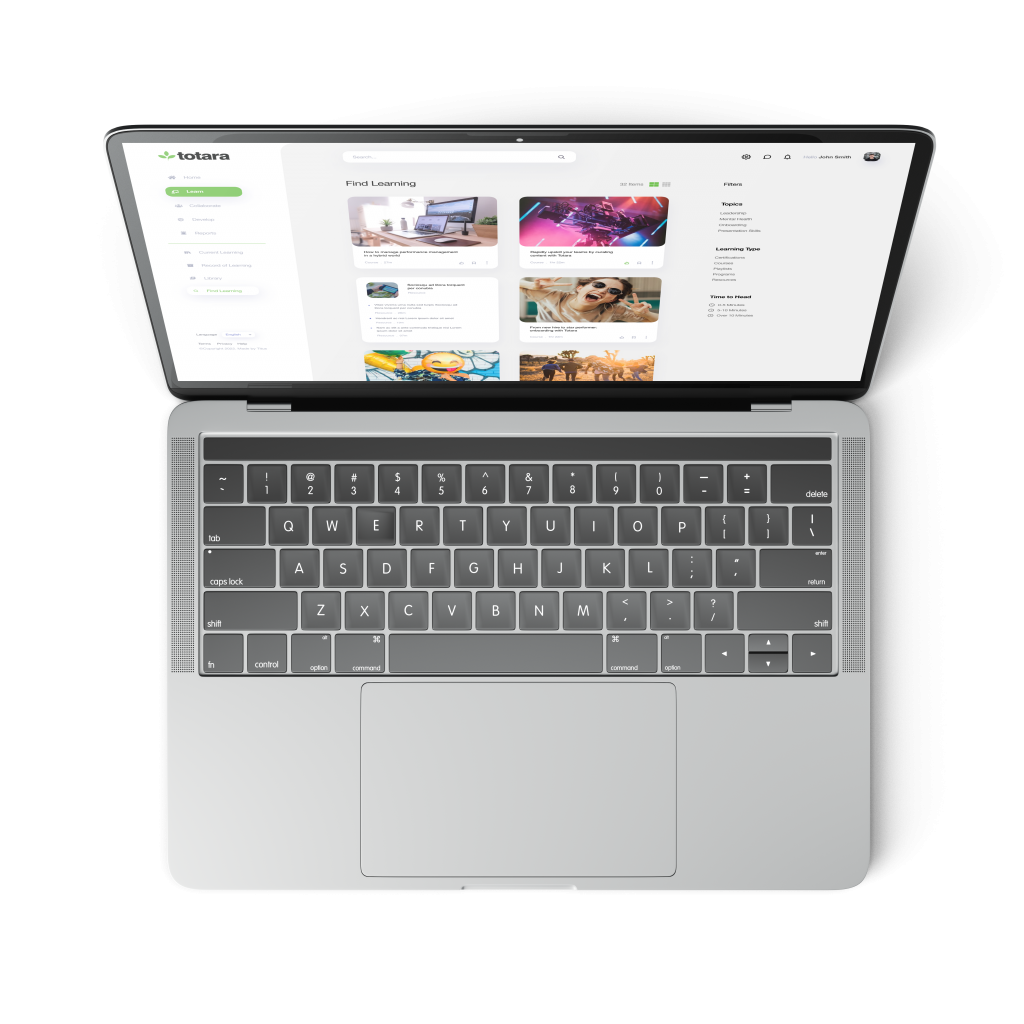Traditional training methods often fail to meet the unique challenges faced by the manufacturing sector, such as coordinating training across multiple shifts, high employee turnover, and the need to train large groups of employees efficiently. This is where Learning Management Systems (LMS) come into their own, revolutionising the way manufacturers approach employee training and development.
In this guide, we’ll explore the benefits of using an LMS for manufacturing sector businesses, key features to look for when choosing the right platform, and practical steps to successfully implement an LMS in your manufacturing business.
What is an LMS for Manufacturing?
Learning management systems are increasingly used in the manufacturing sector to manage employee training and development, certification and compliance.
They provide a centralised hub for companies to create, distribute, and manage training content and an accessible interface for employees to consume resources, complete assessments and track their progress against learning objectives.

What is the difference between LMS and AMS in manufacturing?
While these two types of software platforms share similar acronyms, they serve very different purposes.
Asset Management Systems (AMS) manage and track physical assets such as equipment and infrastructure for preventative maintenance, servicing, and inspections.
Learning Management Systems (LMS) focus on human assets — the employees — ensuring that they have the knowledge, skills, and resources to carry out their role effectively and engage in their own career development by accessing training and upskilling opportunities.
Common L&D challenges faced by manufacturers
Learning and development (as a function) presents some specific challenges for manufacturing businesses — linked to the way these companies are structured, their employment practices, and their day-to-day workflows.
Coordinating training across multiple shifts
Many manufacturing businesses operate 24/7, meaning employees within the same teams may have different shift patterns and schedules — which can make it difficult to ensure a consistent training experience for all staff. The power of an LMS lies in its ability to offer flexible, self-paced learning that can be accessed anytime, anywhere, without the need for in-person training — and for managers to be able to track progress and attainment centrally, rather than scheduling one-to-one reviews.
High employee turnover
Manufacturing businesses often experience high levels of employee turnover, with workers moving between different departments or leaving the company altogether. This can disrupt training efforts and lead to significant skill gaps. An LMS can help mitigate these challenges by enabling quick and efficient onboarding processes for new hires, ensuring that they have access to the necessary training materials from day one — and helping employees upskill and reskill as they move into new roles or departments.
Training large groups of employees
In-person training sessions can be time-consuming, costly, and difficult to coordinate, particularly when dealing with a distributed workforce spread across multiple locations. An LMS offers a scalable, cost-effective solution to this problem. Manufacturers can deliver online training to whole departments or teams simultaneously, without the need for physical classrooms or instructors — engaging employees and providing a personalised and conveniently accessible training experience regardless of their location.
What are the benefits of using LMS in the manufacturing industry?
As well as the broader benefits offered by an LMS — there are specific features which make these platforms transformative for learning and development within a manufacturing and production context.
Standardise training
An LMS helps maintain high-quality production standards and minimise errors and waste by ensuring that all employees receive consistent, up-to-date training.
Enhanced compliance
Within an LMS, manufacturers can easily monitor compliance status and ensure that all employees are up-to-date with the latest regulations and certifications.
Cost-effective training
An LMS reduces costs by offering online training modules that employees can access at their convenience, minimising downtime and travel expenses.
Improve employee performance
Easy access to resources and training materials helps employees improve their skills and knowledge quickly, leading to better job performance.
Scalable onboarding
An LMS helps manufacturing businesses to onboard and train new hires efficiently, making it easy to scale training programs as the company grows.
Real-time tracking and reporting
Manufacturers can easily track training completion, learner progress, and attainment via the LMS, enabling them to accurately measure the impact of training programs.
Monetisation of training
Some LMS platforms offer built-in eCommerce options, allowing manufacturers to monetise external training for end-users or customers, unlocking new revenue streams.
Key features to look for in an LMS for manufacturing
When evaluating the different LMS solutions on offer, it’s important to look at the features and functionality that will have the most impact in a manufacturing setting. Some platforms will be better than others at serving the unique requirements of the sector and your business’s individual objectives.
User-friendly interface
Look for an LMS with an easy-to-use interface—ideally one that can be customised to show different layouts for different user roles. This can boost engagement and reduce the amount of training/onboarding needed for users to get familiar with the platform — crucial to reducing employee downtime and impact on production schedules.
Mobile accessibility
Mobile access is a must. You need to ensure that you can view the LMS via a smartphone but also that it’s easy to complete key activities and tasks using a mobile interface. It’s worth opting for an LMS with a dedicated mobile app rather than relying on mobile web browsers to interact with the platform. This allows employees to manage their own schedule and complete learning objectives wherever they’re working and at whatever time best suits them.
Customisable content
Relevant and targeted content, courses and resources are far more effective than off-the-shelf generic learning materials. LMS solutions which include content authoring or editing tools allow manufacturing organisations to customise content to their own products and workflows, making it more relevant and relatable to learners and helping them quickly understand and retain the information.
Interactive elements
Interactive features such as quizzes, simulations, and games can enhance learner engagement and retention compared to text-only content. They provide an opportunity to learn while doing, rather than demanding that trainees commit large amounts of information to memory from a single read-through — which suits diverse learning styles and ability levels.
Compliance management
For many manufacturing businesses, ensuring that employees are certified, trained and compliant with industry standards and regulations is a key L&D objective. Look for an LMS that can automate the management of employee compliance, providing reminders when refresher training is due, issuing certificates automatically to employees who have demonstrated competence in a particular area, and allowing management to see a clear overview of any compliance gaps or issues across the workforce.
Integration capabilities
Ensure that the LMS you choose can easily integrate with other systems used in your business — such as HR and ERP systems, allowing seamless data flow and efficiency. This can also help reduce time spent on administrative tasks, enrollment or reporting, freeing up resources to focus on planning, content and course creation, and continuous improvements to the platform based on learner feedback.
6 steps to implement an LMS in your manufacturing business
Carefully planning the rollout of your LMS is vital to ensuring that your employees are engaged and enthused about the platform from day one.
1 - Choose the right LMS
Research and compare various LMS options, considering the features, scalability, and integration capabilities that align with your needs.
2 - Assess training needs
Begin by identifying your organisation's specific training requirements, skill gaps, and objectives.
3 - Develop training content
Create engaging, relevant, and interactive training content tailored to your manufacturing processes and employee roles.
4 - Equip your training team
Ensure that your training team is well-versed in using the LMS and can effectively manage and deliver training programs.
5 - Launch the LMS
Roll out the LMS to teams or departments in phases, providing training and support to employees and administrators.
6 - Track and improve
Continuously monitor training effectiveness, gather feedback, and make data-driven improvements to optimise your training programs.
Why Choose Totara and Moodle for Manufacturing?
As official Moodle and Totara Partners, we’ve seen firsthand the difference that these adaptable and highly customisable LMS solutions can make—transforming learning and development outcomes in businesses across the manufacturing and production industries. Here’s a quick profile of each platform, highlighting its particular strengths.
Totara
Totara is a flexible, workplace-focused LMS that offers several features geared towards the needs of manufacturing businesses:
- Customisable learning paths and competency frameworks
- Robust reporting and analytics for tracking training effectiveness
- Compliance management features for ensuring regulatory adherence
- Multi-language support for global manufacturing operations
- Add-on platforms for performance management and social learning
- Seamless integration with HR and ERP systems

Moodle LMS
Moodle is a powerful open-source LMS that can be tailored to meet the needs of manufacturers — and is a particularly strong choice where a high degree of customisation is required:
- A highly adaptable platform that can be customised to fit specific manufacturing fields or processes
- Wide range of plugins and integrations for extending functionality
- Mobile-friendly design for on-the-go learning
- Collaborative tools for fostering knowledge-sharing and problem-solving
- Active global community for ongoing support and development

Moodle Workplace
Developed from Moodle LMS, Moodle Workplace is a business-oriented version of the platform with a range of useful features available out of the box — requiring less customisation or configuration than its open-source cousin.
- Intuitive interface and user experience tailored for workplace learning
- Customisable learning paths and competency-based training
- Automated compliance tracking and reporting
- Powerful reporting and analytics for measuring training ROI
- Multi-tenancy support for managing multiple departments or locations
- Integration with popular HR, MIS and communication tools and systems
- Dedicated support and training from Moodle's network of certified service providers

Getting started with a manufacturing-focused LMS
Implementing an LMS in your manufacturing business can revolutionise the way you train and develop your workforce, leading to improved efficiency, compliance, and employee performance. If you’re ready to reap the rewards, our team of e-learning experts is here to help.
Contact us today to discuss your unique needs and learn how the Totara or Moodle platforms can be tailored to drive success in your manufacturing training and development programs.







